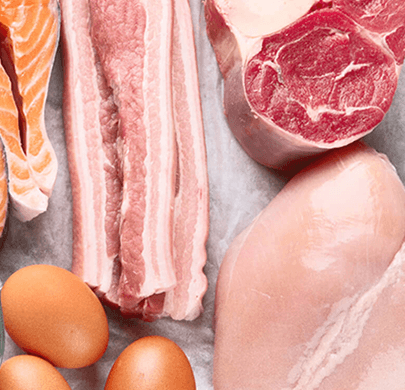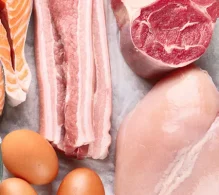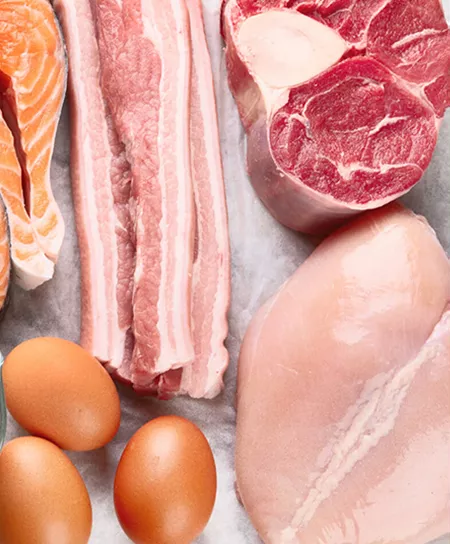I mention protein and you echo “meat.”
Animal foods, especially beef, are marketed for their high protein virtue (the unique position*). The truth is, all natural plant foods contain enough total proteins, and individual amino acids, to always meet our nutritional needs. May I say it again: There has never been a case of protein deficiency ever reported to occur in humans on natural diets. You can readily observe that plants meet the protein needs of the earth’s largest animals: elephants, hippopotamuses, giraffes, and cows. You would be correct to deduce that the protein needs of much smaller humans can easily be met by corn, potatoes, rice, and/or wheat.
The World Health Organization (WHO) recommends that men and women obtain 5% of their calories as protein. Human breast milk, the proper food for us during our time of most rapid growth, is only 5% protein. When measured in grams: an active man requires 38 grams, and a woman 29 grams; rice alone would provide 71 grams of highly useable protein; white potatoes would provide 64 grams daily. Our requirements for protein are so small that this nutrient should never be considered in planning a diet for people or the Planet.
Damage to Patient Earth: Livestock (especially cows and lambs) overproduce all three greenhouse gases that warm the planet. Emissions of methane (CH4) and nitrous oxide (N2O) are from their manures, and methane from fermentation inside their guts. In addition, nitrous oxide comes from fertilizers to grow their feeds, and CO2 emissions from fossil fuels to run farm equipment, to grow feed, and finish the animals for food. Deforestations from cattle grazing are destroying “carbon sinks” around the world. The world now produces more than three times the quantity of meat as it did 50 years ago.
*Effective marketing focuses on the “unique positioning” of products, promoting the most exceptional characteristic of a selected merchandise to enhance sales, regardless of the consumer benefits.




